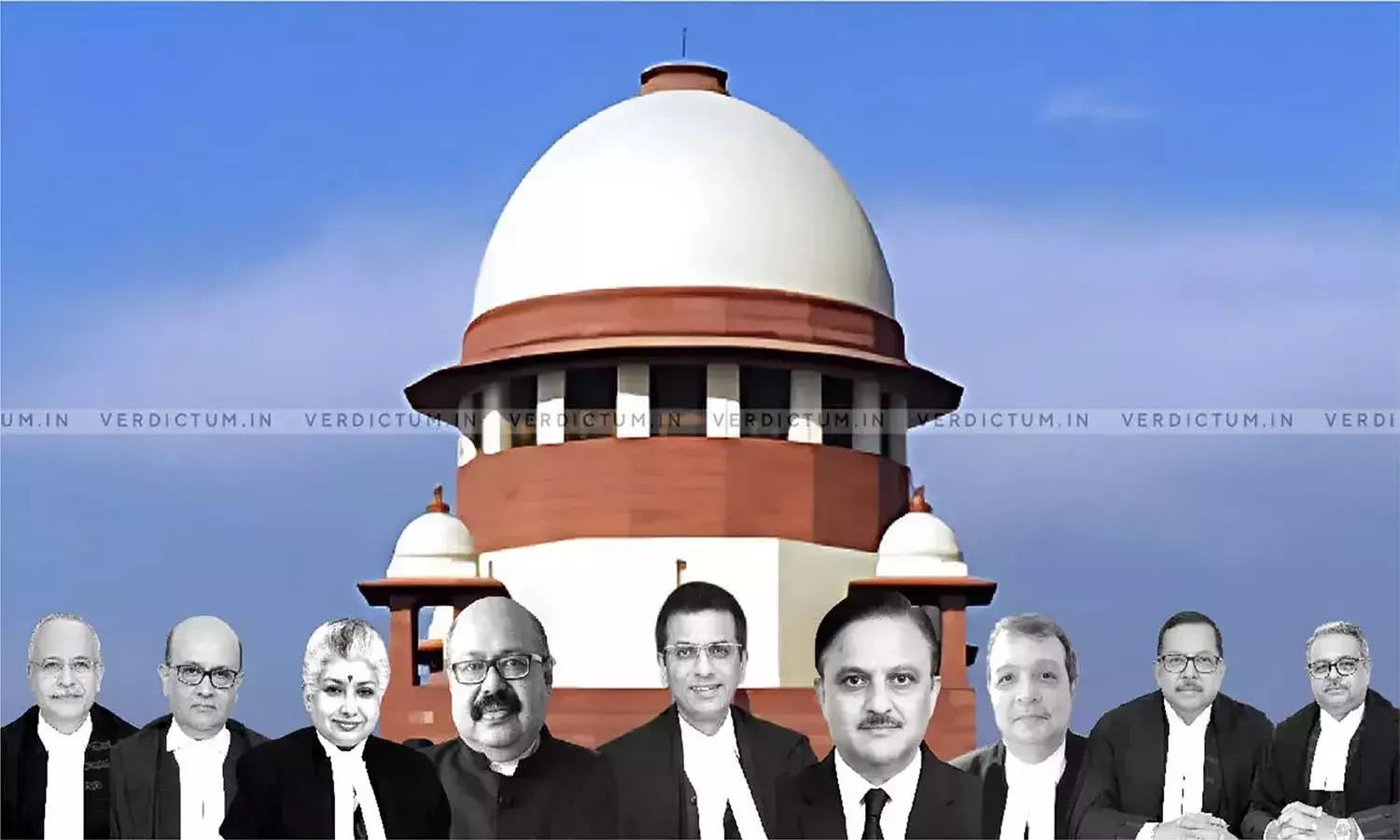Breaking| SC Overturns Its 1990 Judgment By Majority Of 8:1; Holds 'Industrial Alcohol' Is 'Intoxicating Alcohol'
The Supreme Court today pronounced judgment in a batch of petitions on the issue of overlapping powers of the Centre and states over the production, manufacture, supply, and regulation of industrial alcohol.
The 8-Judge Bench of Chief Justice DY Chandrachud, Justice Hrishikesh Roy, Justice Abhay S. Oka, Justice JB Pardiwala, Justice Manoj Misra, Justice Ujjal Bhuyan, Justice Satish Chandra Sharma, and Justice Augustine George Masiah overruled its 1990 Judgment. However, Justice BV Nagarathna dissented.
At the outset, the CJI said, "There are two opinions on the industrial alcohol judgment. One has been authored by me for the seven judges, and the other by Justice Nagarathna. By a majority we have set aside the 1990 decision in Synthetic & Chemicals Ltd. Etc vs State Of U.P. And Ors."
The Court held that Entry 8 State List II includes both industrial and product of intoxicating liquor. It further held that Entry 52 List I and Entry 8 List II have overlapping competence over intoxicating liquor. The majority observed that the State's power cannot be taken away for making laws on intoxicating liquor.
The 8-Judge Bench pronounced, "The term 'intoxicating liquor' includes the production, manufacture and distribution of liquor or alcohol that doesn't traditionally cause intoxication and will also be considered as intoxicating liquor...a common thread between alcohol, opium and drugs is that they obnoxious substances and can be used as raw material also."
In a separate opinion, Justice Nagarathna dissents.
Pertinently, on April 18, the Bench had reserved the verdict. The decision follows extensive arguments presented in April by Attorney General (AG) R Venkataramani, Solicitor General (SG) Tushar Mehta, and Senior Advocates Dinesh Dwivedi and Arvind P Datar, who represented various states, including Uttar Pradesh. The case revolves around the legislative powers of the Centre and state governments under different entries in the Constitution’s Seventh Schedule.
The legal dispute concerns the regulation of industrial alcohol, which is not intended for human consumption. Under Entry 8 of the State List, states have the power to legislate on the manufacture, possession, transport, purchase, and sale of "intoxicating liquors." However, Entry 52 of the Union List and Entry 33 of the Concurrent List give the Centre regulatory authority over industries declared by Parliament to be in the public interest.
While the Concurrent List allows both Parliament and state legislatures to enact laws on shared subjects, central laws take precedence over state laws in cases of conflict. This case, which has been ongoing for decades, was initially decided in 1997 by a seven-judge bench, which ruled in favour of the Centre, affirming its regulatory power over the production of industrial alcohol.
The case was referred to the nine-judge bench in 2010 for further deliberation after the seven-judge bench’s ruling was challenged by state governments. In 1990, the seven-judge bench observed that through the Industries (Development and Regulation) Act, 1951, the Centre had shown a clear intent to occupy the field of legislative competence on this subject, limiting the powers of state governments.
Cause Title: State of UP & Ors. v. M/S Lalita Prasad Vaish [C.A. No. 151/2007]
Click here to read/download the Judgment












